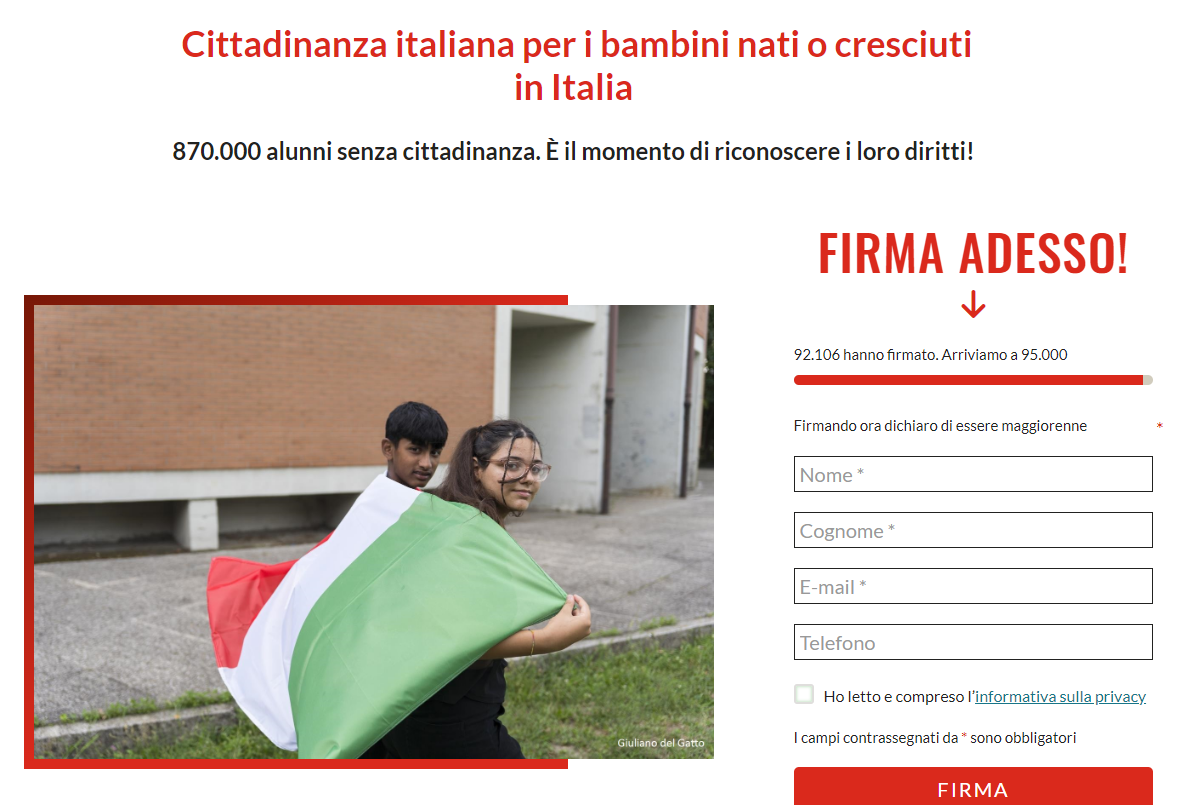Child Poverty
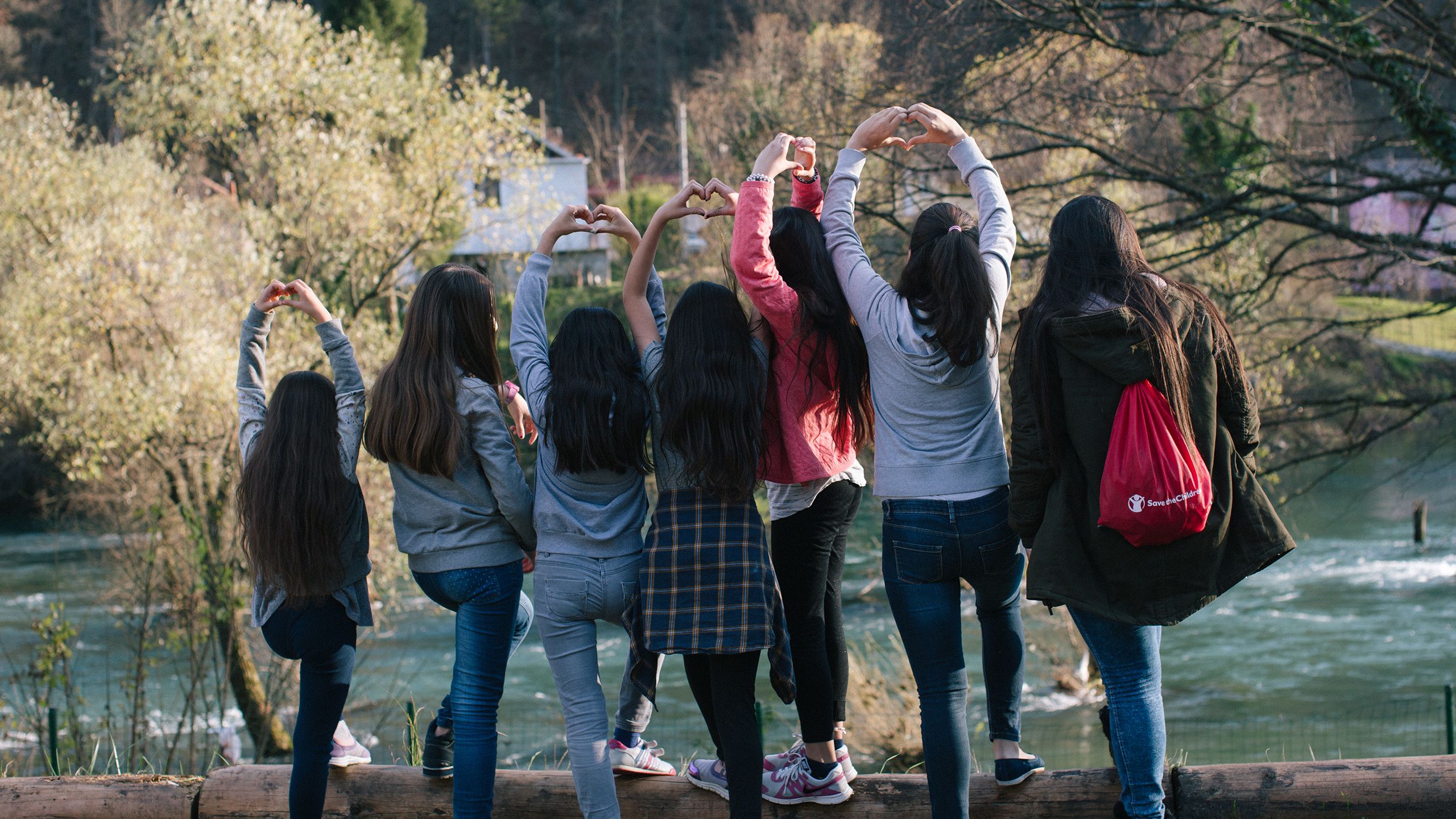
Europe is one of the world’s wealthiest regions. Yet Eurostat’s latest data shows that almost one in four children, that is more than 20 million, in the EU is at risk of experiencing poverty and social exclusion. These numbers will likely rise, give the compounding social emergencies which characterized the last few years.
While the situations vary from country to country, the result is always the same: an unacceptable deprivation of children's fundamental rights.
Poverty affects every aspect of a child’s life, negatively impacting their material living conditions, education, and their personal and professional development. Even temporary deprivation experiences can have devastating consequences for a child, lasting a lifetime, if not generations.
Our decades of experience lend weight to our knowledge and research, which we share with policymakers and international networks to catalyse change.
In the face of a convergence of social crises, we’re now witnessing new political momentum for protecting children’s rights in Europe. At Save the Children we’re proud of the part we’ve played in creating that, and we’re determined that it leads to decisive, lasting action.
There are national child rights and anti-poverty strategies, unprecedented international frameworks such as the European Child Guarantee and its National Action Plan, national and EU targets on child poverty, and funding to deliver them.
But the work is far from done – now comes the definition of clear targets and effective funding, implementation, data collection, evaluation... European countries and institutions must capitalise on the moment and live up to their commitments.
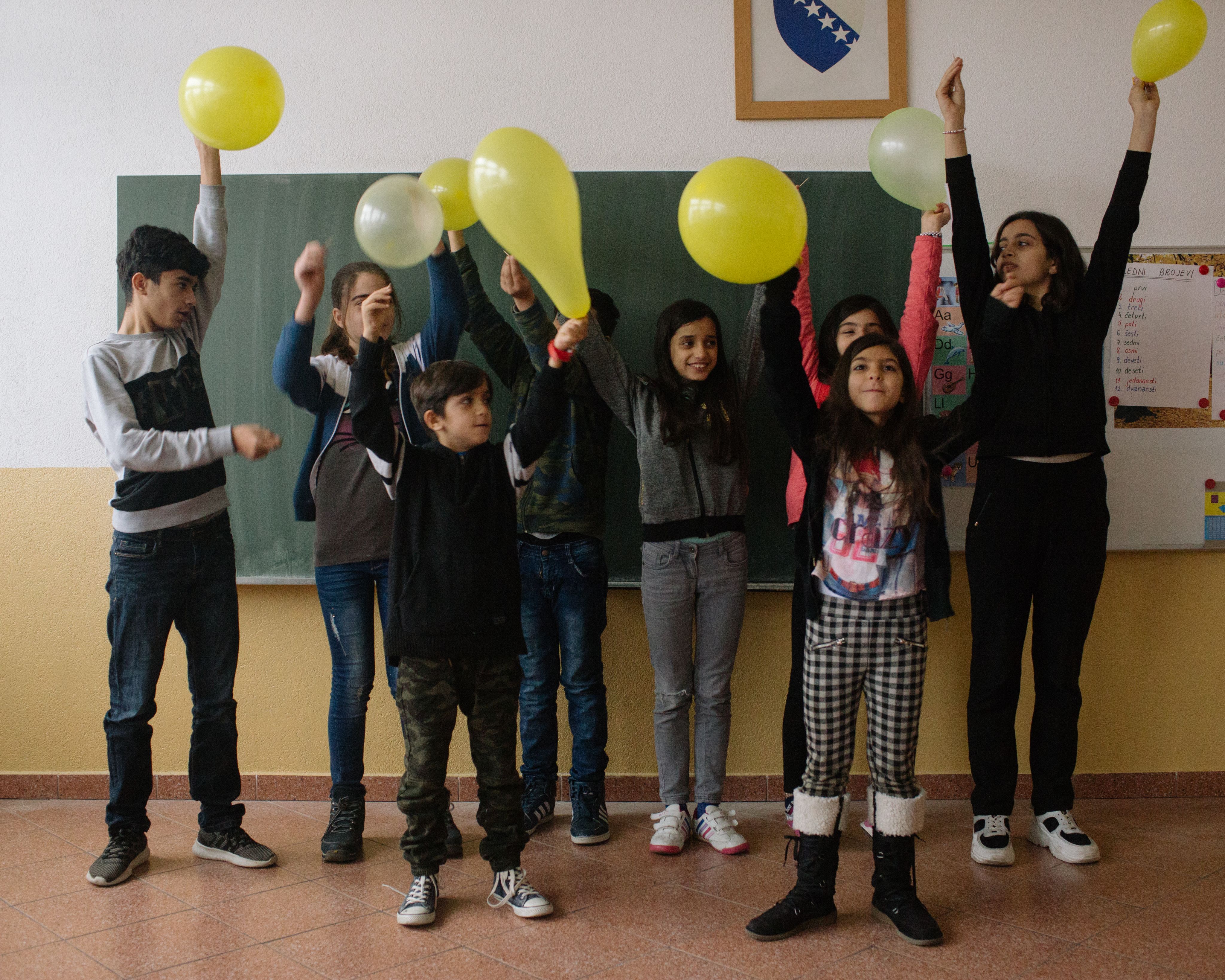
Photo: Save the Children North-West Balkans
Photo: Save the Children North-West Balkans
Advocacy
...by Save the Children EUROPE
MEPs Brando Benifei and Milan Brglez, and Commissioner Schmit, joined us for the launch of the Child Poverty Report in the European Parliament (EP) in March. Building on the input and insight received by Save the Children members and offices working in European countries, the report takes stock of the status of child poverty in the European continent, analyses the development of the European Child Guarantee, advocates for robust child social protection policies. Moreover, the report also highlights the important link between climate change and child poverty in Europe.
Delegates from European members and offices came to Brussels to participate in the high-level event and meet with EU policymakers, including from the Directorate-General for Employment, Social Affairs and Inclusion Child Guarantee team and desk officers, EP political group advisors, and Secretary General of the EP Intergroup on Children's Rights.
The report was then disseminated to the key stakeholders, including the European Social Fund Plus (ESF+) Committee, national authorities working on children rights and child poverty, and the Directorate-General for Structural Reform Support.
As co-chair of the EU Alliance for Investing in Children, we also ran a session on the Child Guarantee and presented the Alliance latest statement at the second bi-annual Porto Social Forum in May. We then participated at the annual Child Guarantee National Coordinators’ meeting organised by the European Commission in Brussels the following month.
In September we also presented the Child Poverty Report findings at the State of the European Social Union, event at the European Parliament.
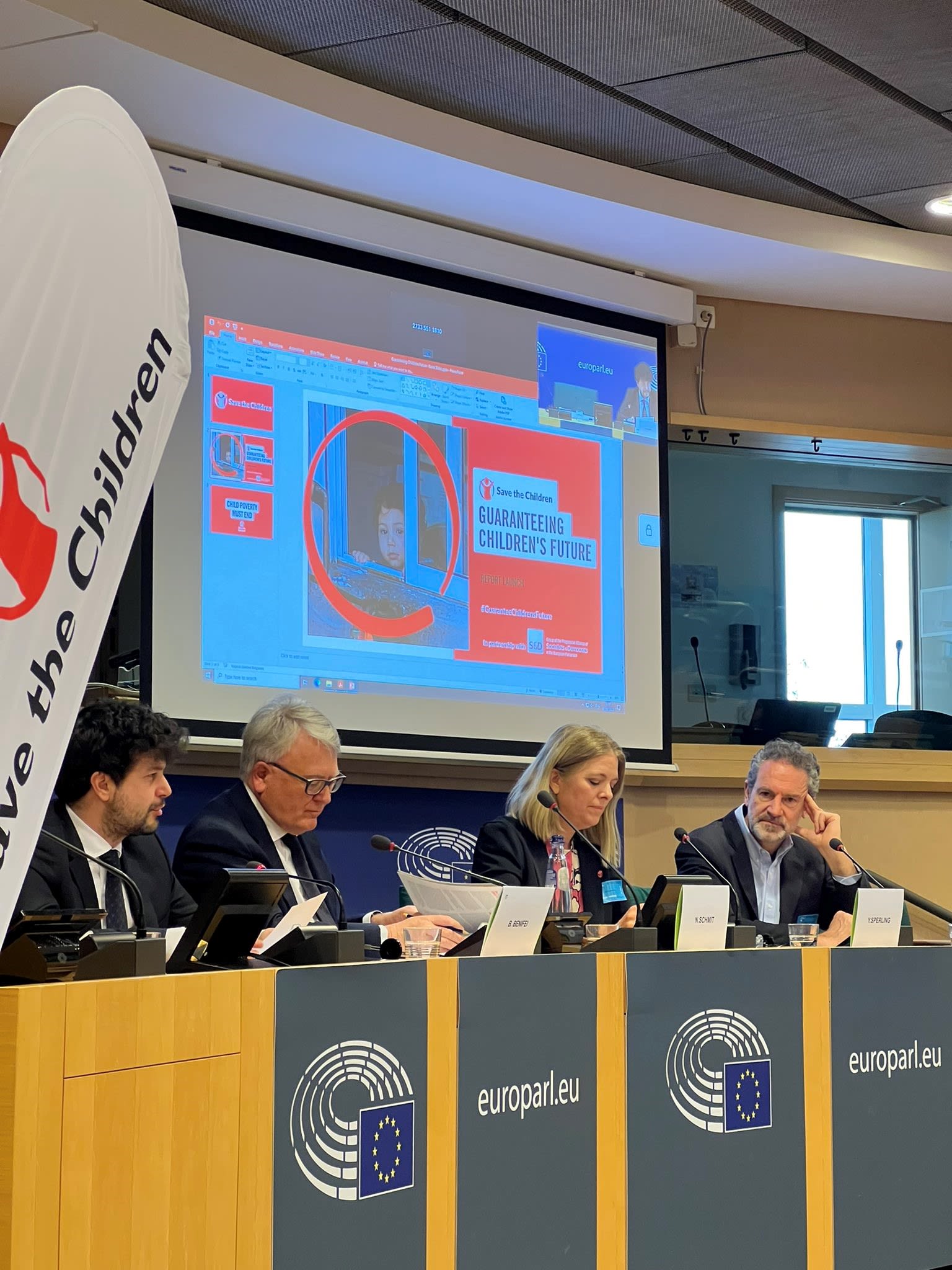
...and country by country
ALBANIA
Save the Children in Albania has been a key player in increasing investments and services for children and ensuring progress in the country’s commitments to children’s rights.
Over the years, we’ve advised and collaborated on EU country progress reports, raising concerns around protecting children’s rights, effectively addressing poverty, and pushing services to reach the children who need them most. In March, the team used the findings of the Child Poverty Report to call for accountability and action, including through effective implementation of the Child Guarantee.
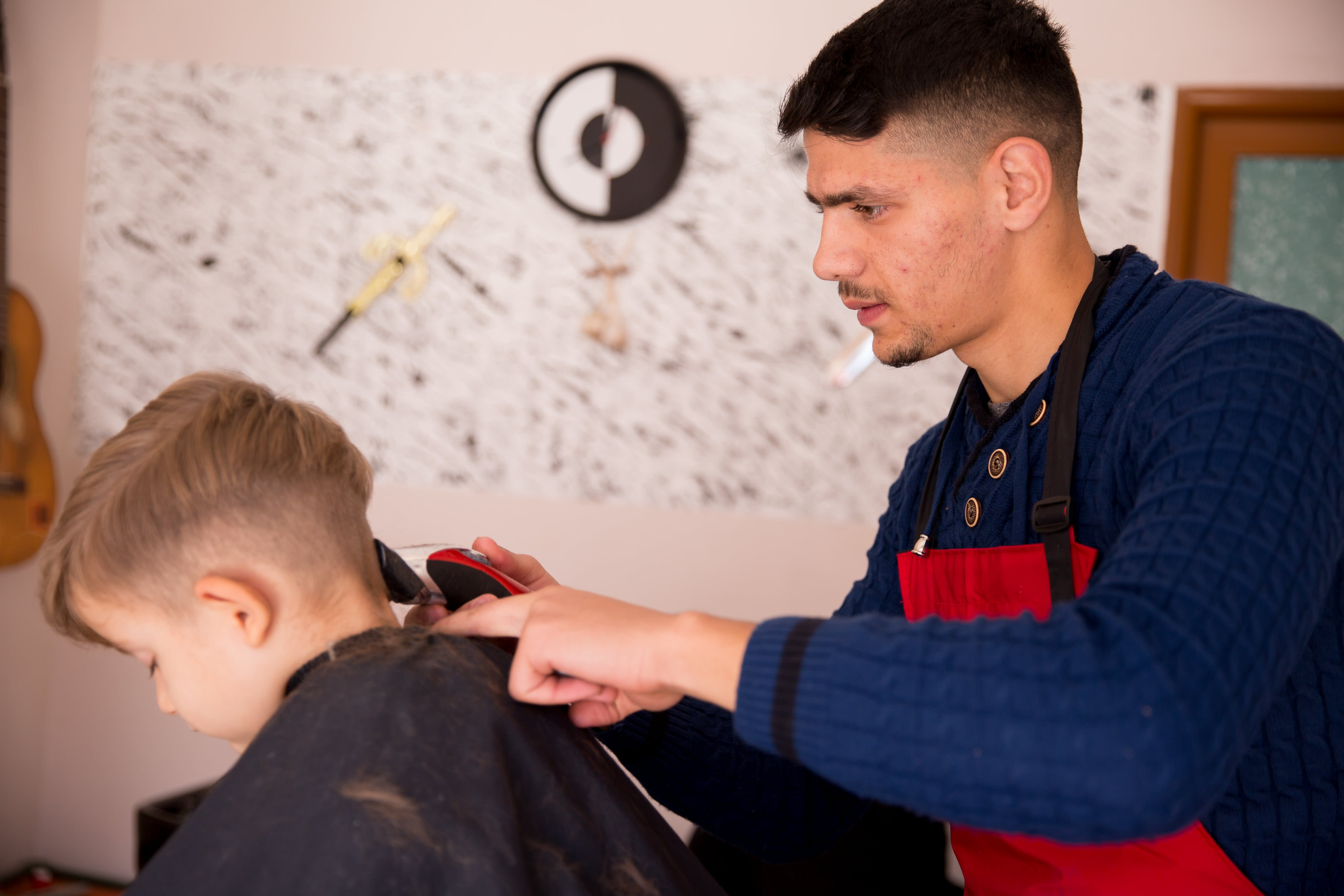
Photo: Save the Children Albania
Photo: Save the Children Albania
DENMARK
Save the Children Denmark is a key player in #BørniFattigdomNejTak, a national network of 27 organisations fighting child poverty. The network advocates, including through open letters to the government and parliament, to boost public awareness and exert political pressure.
After the 2022 elections, the focus was to influence the new government to tackle child poverty, including bringing in new measures to offer support to children in poverty in line with inflation.
We worked to ensure children's rights were protected in governmental agreements that address poverty. Although these bring far too few children out of poverty, there are some victories, including free medicine for children whose parents receive benefits, and monthly grants for children’s leisure activities.
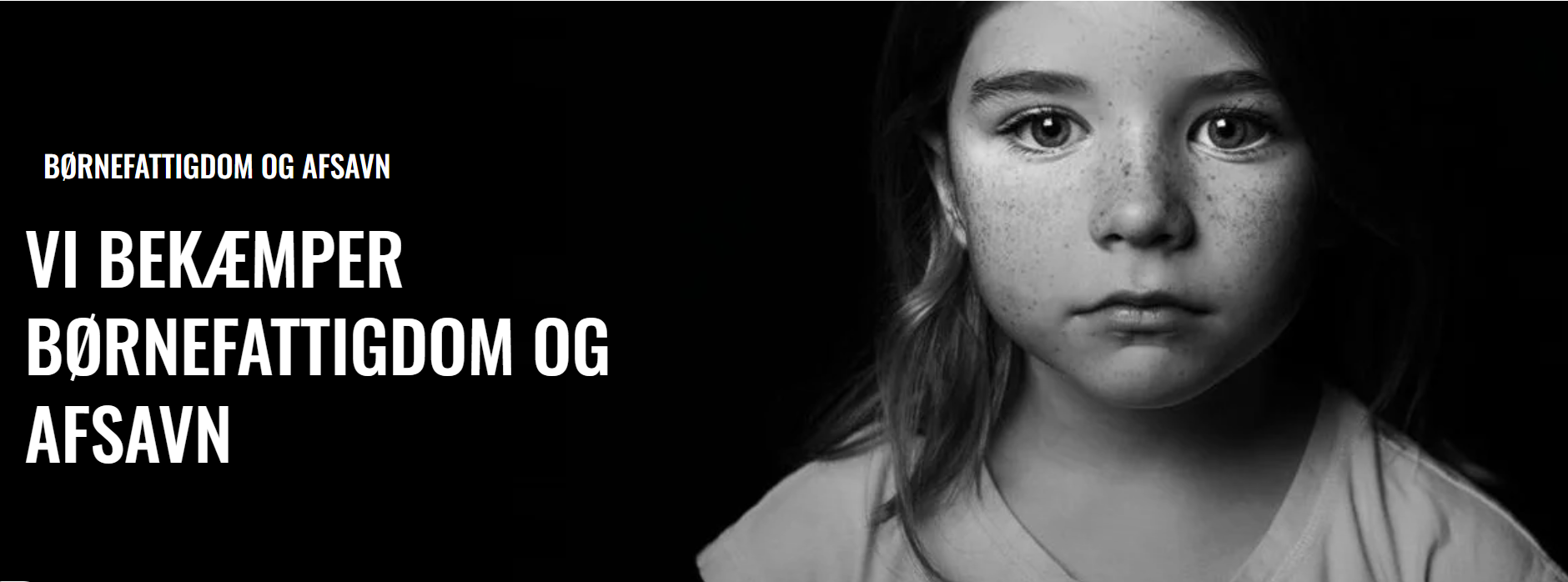
Photo: Save the Children Denmark
Photo: Save the Children Denmark
FINLAND
In spring 2023, Save the Children Finland surveyed the experiences and views of children on their wellbeing and family’s livelihood. The resulting Children’s Voice report highlighted a worrying trend in children’s and young people’s mental health.
In their responses, children talked about their difficult emotions and challenging personal relationships more than they had the previous year. Children who described their family as low-income said they experienced deprivation in everyday life, decreased leisure opportunities and overall deterioration in wellbeing. Many children in low-income families felt worried and stressed, with weaker mental wellbeing than other respondents.
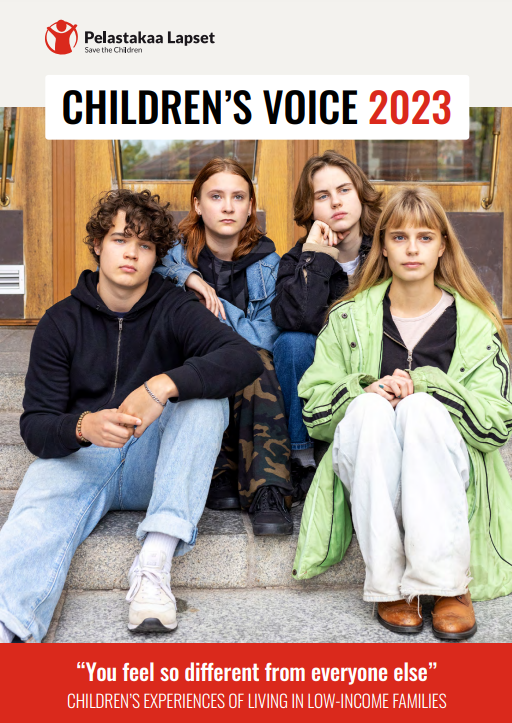
Photo: Save the Children Finland
Photo: Save the Children Finland
GERMANY
In March 2023, Save the Children Germany published the German version of the Child Poverty Report. Parliamentary State Secretary Ekin Deligöz, from the Federal Ministry for Family Affairs, was a panelist at the launch event.
Throughout the year, the team advocated for the reform of the child benefit system (kindergrundsicherung), influencing the legislative process and commenting on the draft versions of the law. In October, as part of the Bündnis Kindergrundsicherung alliance, they presented their recommendations to the parliament.
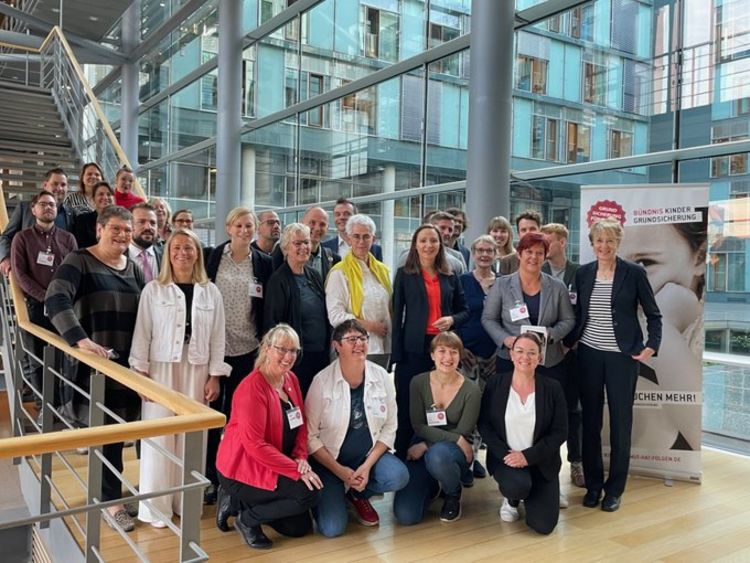
Photo: Save the Children Germany
Photo: Save the Children Germany
Save the Children Germany is also working with the Ministry of Family Affairs on the Child Guarantee and, Since September, has been part of the monitoring committee to support the National Action Plan.
ITALY
This year, Save the Children Italy launched the policy paper School canteens: an essential service to reduce inequalities at the Chamber of Deputies. A petition following their report on school inclusion of children from migrant backgrounds has gained 65,000 signatures and counting.
Photo: Save the Children Italy
Photo: Save the Children Italy
The team’s yearly publication on motherhood in Italy, The equilibrists, included updated data on the gender gap in the labour market and in the care of the family.
Save the Children Italy also presented a report on child labour to the Minister of Labour and released findings of an investigation into children doing farm work in Latina and Ragusa.
KOSOVO
Successfully advocating on early childhood education this year, Save the Children Kosovo supported the Parliamentary Commission to revise a law incorporating a community-based model, ensuring holistic, quality services for children and their families.
Results from the 2023 International Development and Early Learning assessment show positive increases in motor, early literacy, early numeracy and social-emotional learning, demonstrating the effects of work to support children’s early childhood care and development by Save the Children Kosovo’s activities and its partners.
In 2022, a Save the Children Kosovo report on the importance of investing in early childhood – and of using a community-based model of care – filled an evidence gap. In October this year, the national office presented the findings – along with insights from parents, caregivers and educators – to national and local governance stakeholders to show the positive impact this community-based programming has had for children’s development.
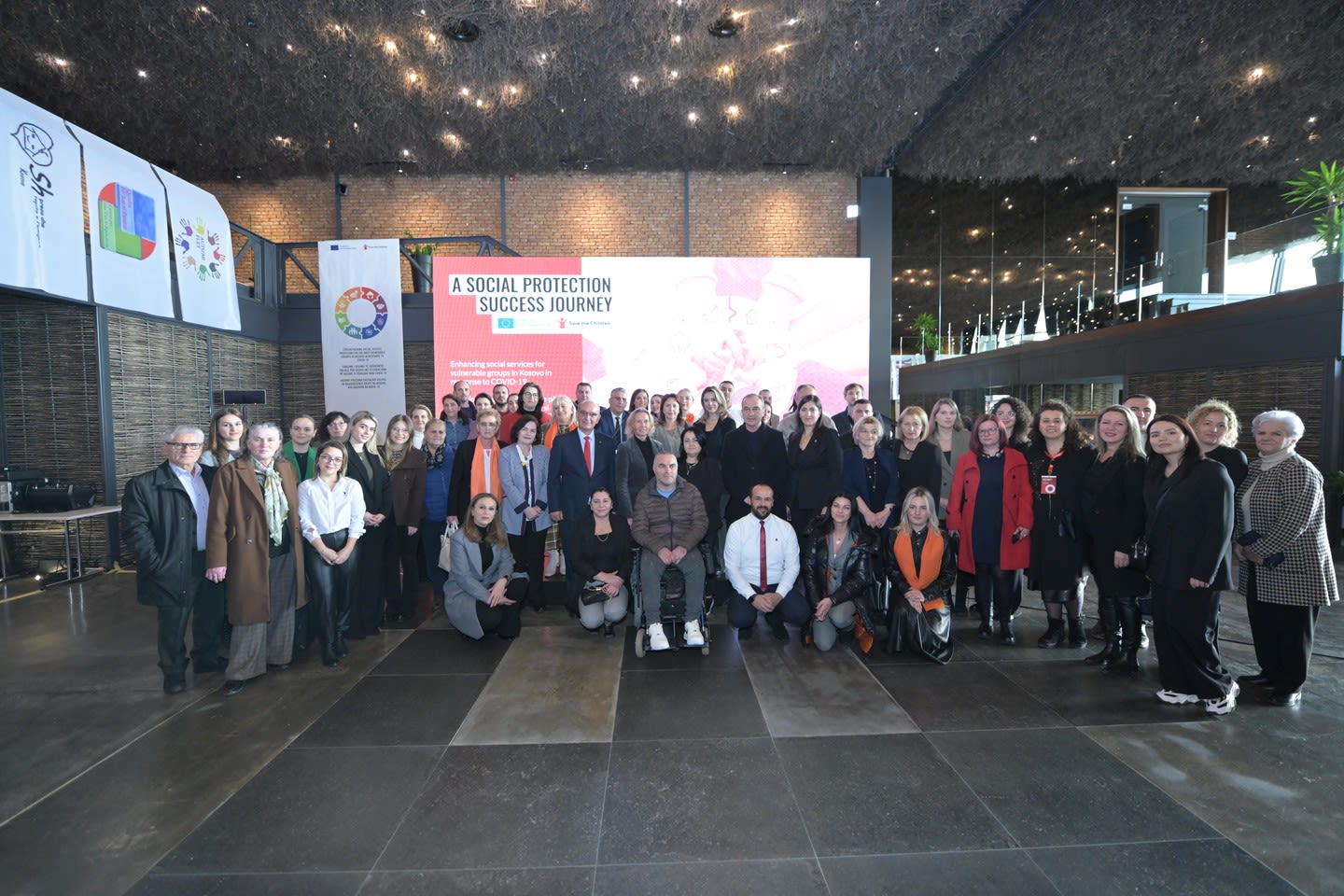
Photo: Save the Children Kosovo
Photo: Save the Children Kosovo
Save the Children Kosovo has intensively supported the process of finalizing the Law on Social and Family Services, to ensure a stable financial scheme for social services in Kosovo. On December 14th, the law was approved by the Parliament of Kosovo.
NORWAY
Since 2021, Save the Children Norway has been running a tireless advocacy campaign to increase child benefit and reduce the number of children growing up in low-income families.
Gathering and promoting all the latest information and expertise, Save the Children Norway teams met parliamentarians and ministers, engaged local politicians, addressed think tanks from the complete political spectrum, and created common understanding among a broad range of NGOs. In June 2023, an increase in child benefits was finally announced.
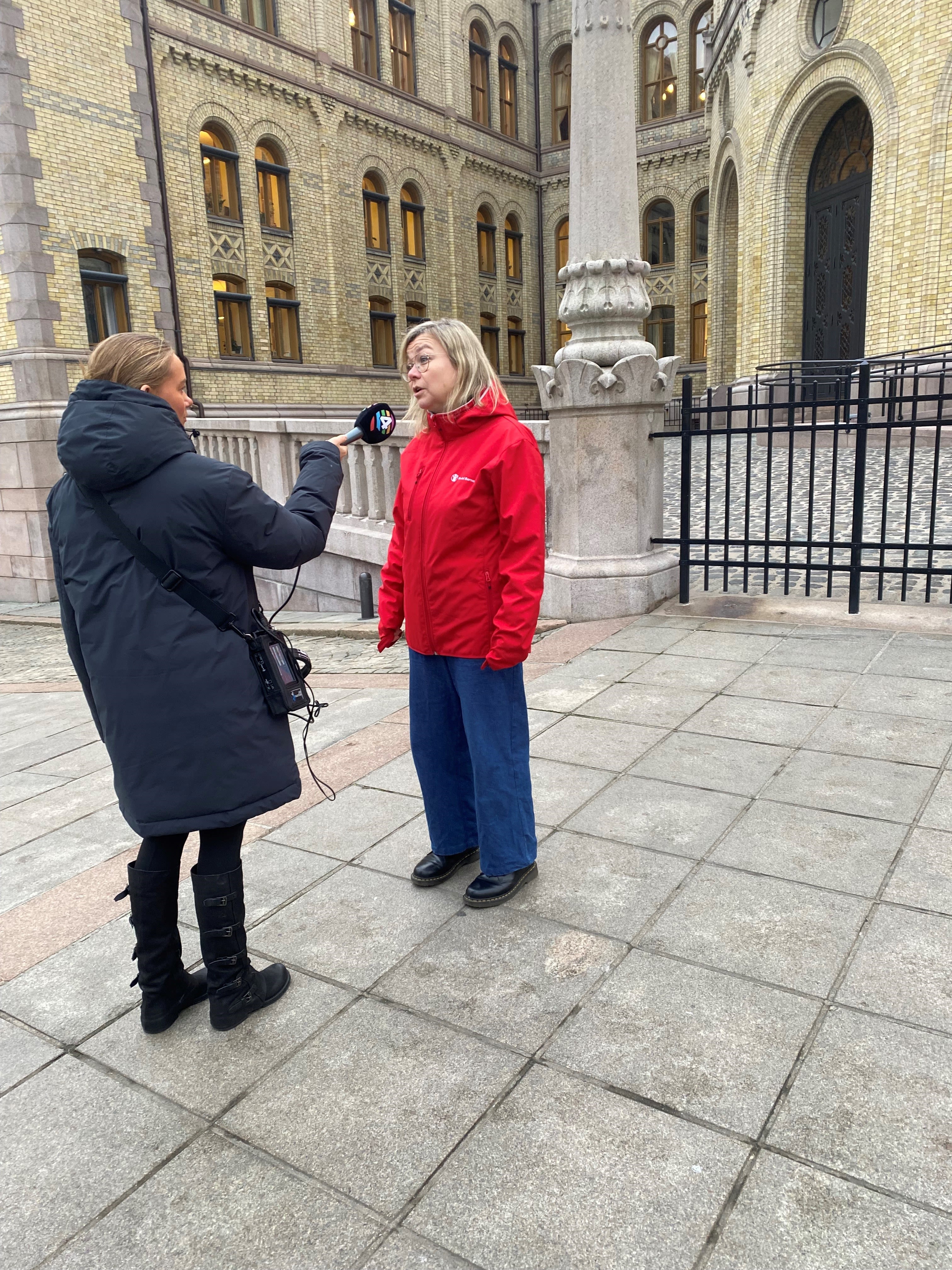
Photo: Save the Children Norway
Photo: Save the Children Norway
POLAND
Save the Children Poland partnered with REACH on intensive research to analyse the vulnerabilities, protective factors, and protection needs of children, adolescents and their caregivers who have been displaced by the conflict in Ukraine.
The research, along with evidence recommending the use of cash transfers, was published to allow further analysis by any child poverty actor in Poland.
Photo: Save the Children Poland
Photo: Save the Children Poland
ROMANIA
A number of Save the Children Romania’s education proposals have been adopted by Romanian Parliament this year, including: the definition of the principle of the best interests of the student; improving the provision of social grants by making it possible to combine them with other grants; the re-introduction of resource centres and psychological assistance to ensure there are enough school counsellors; supplementing the standard cost for children with special education needs; and the inclusion of independent students’ associations in Ministry of Education consultations, allowing students to have a say in decision-making.
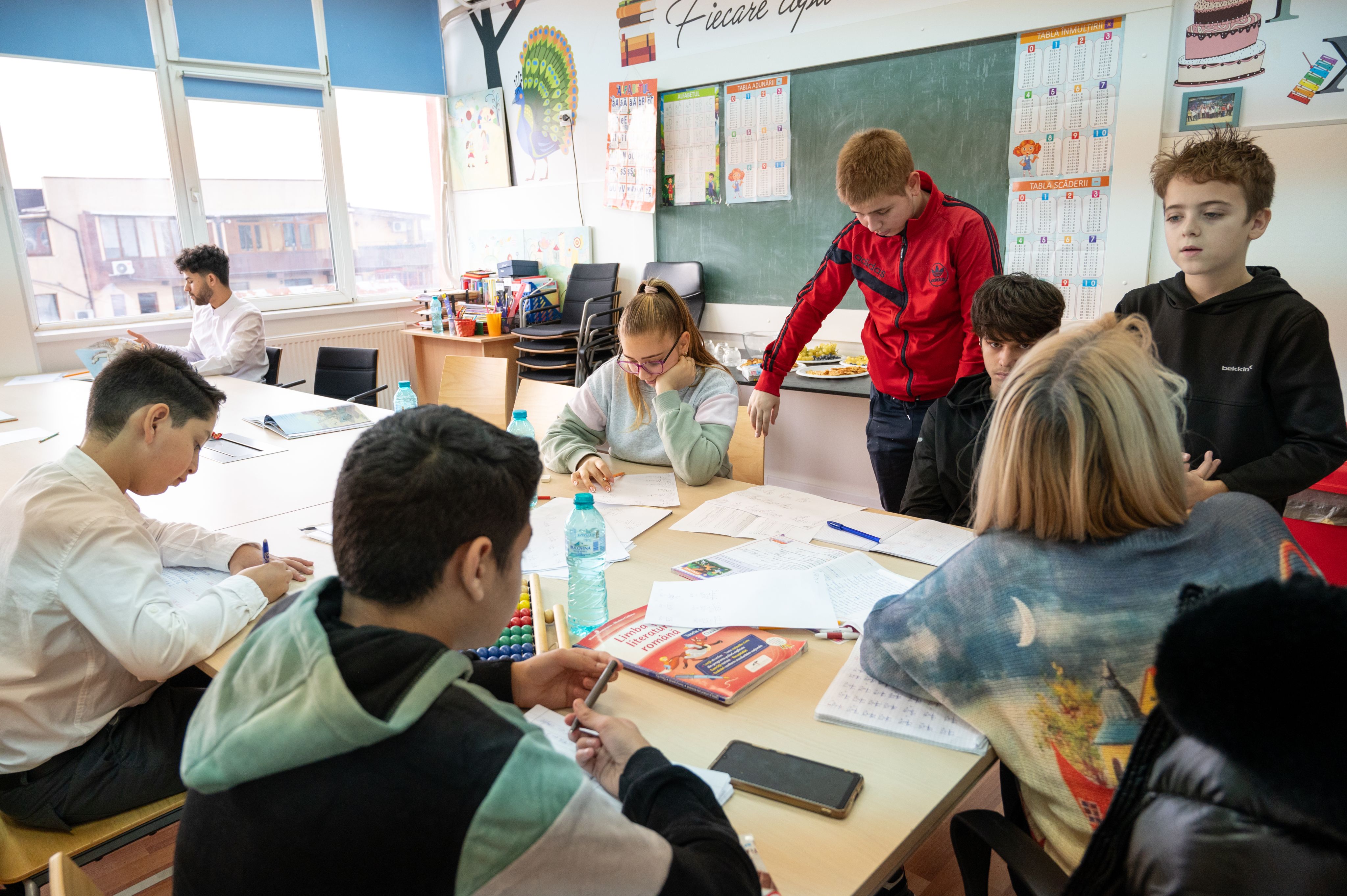
Photo: Claire Thomas/ Save the Children Romania
Photo: Claire Thomas/ Save the Children Romania
SPAIN
In February 2023, Save the Children Spain launched a report on energy poverty showing some of the consequences it has for children. Following the team’s advocacy efforts, some of the report recommendations made it onto manifestos during the General Elections.
A housing report in March then highlighted the lack of social housing and burden of housing expenses for vulnerable families.
Photo: Save the Children Spain
Photo: Save the Children Spain
Ahead of the general elections, the team held meetings with all the political parties addressing these issues in programs and speeches ahead of the investiture.
SWEDEN
In March, Save the Children Sweden saw a lack of updated statistics evidencing economic decline was leaving many politicians hesitant to fully acknowledge the issue. The team came together with a number of organisations to conduct a national survey and day of themed events, with all parties of government and parliament represented.
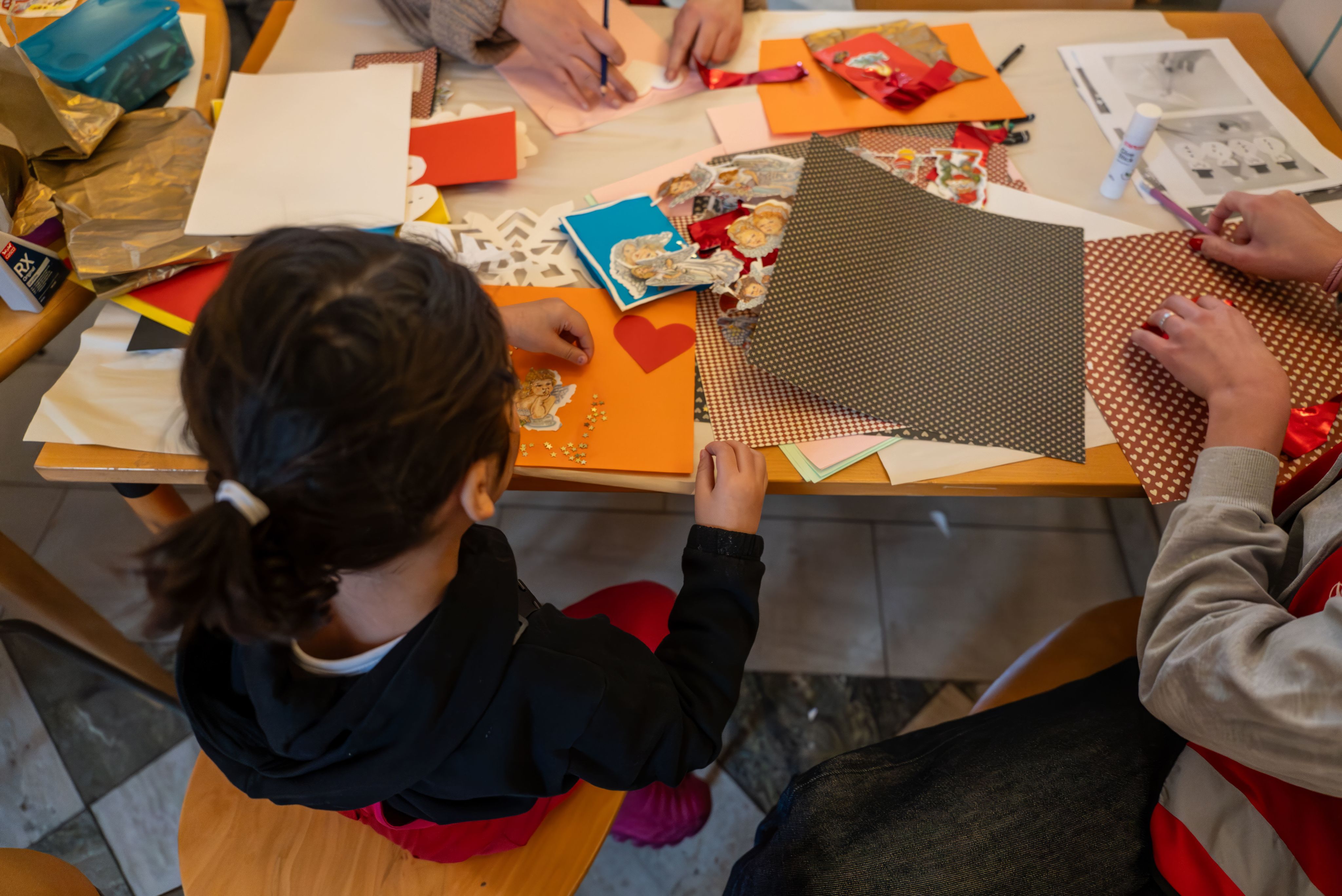
Photo: Save the Children Sweden
Photo: Save the Children Sweden
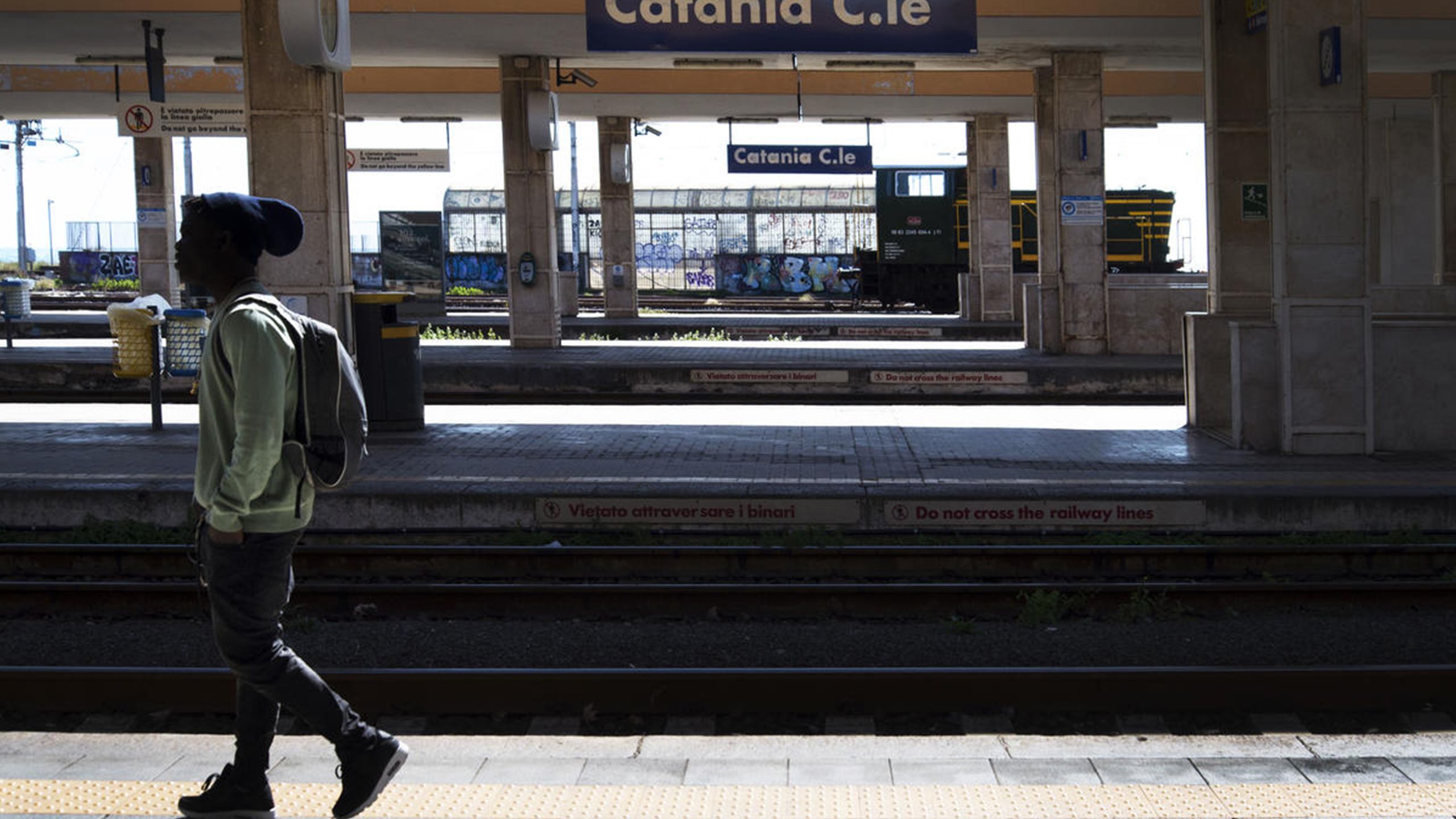
Programming
CHILD POVERTY AND EDUCATION
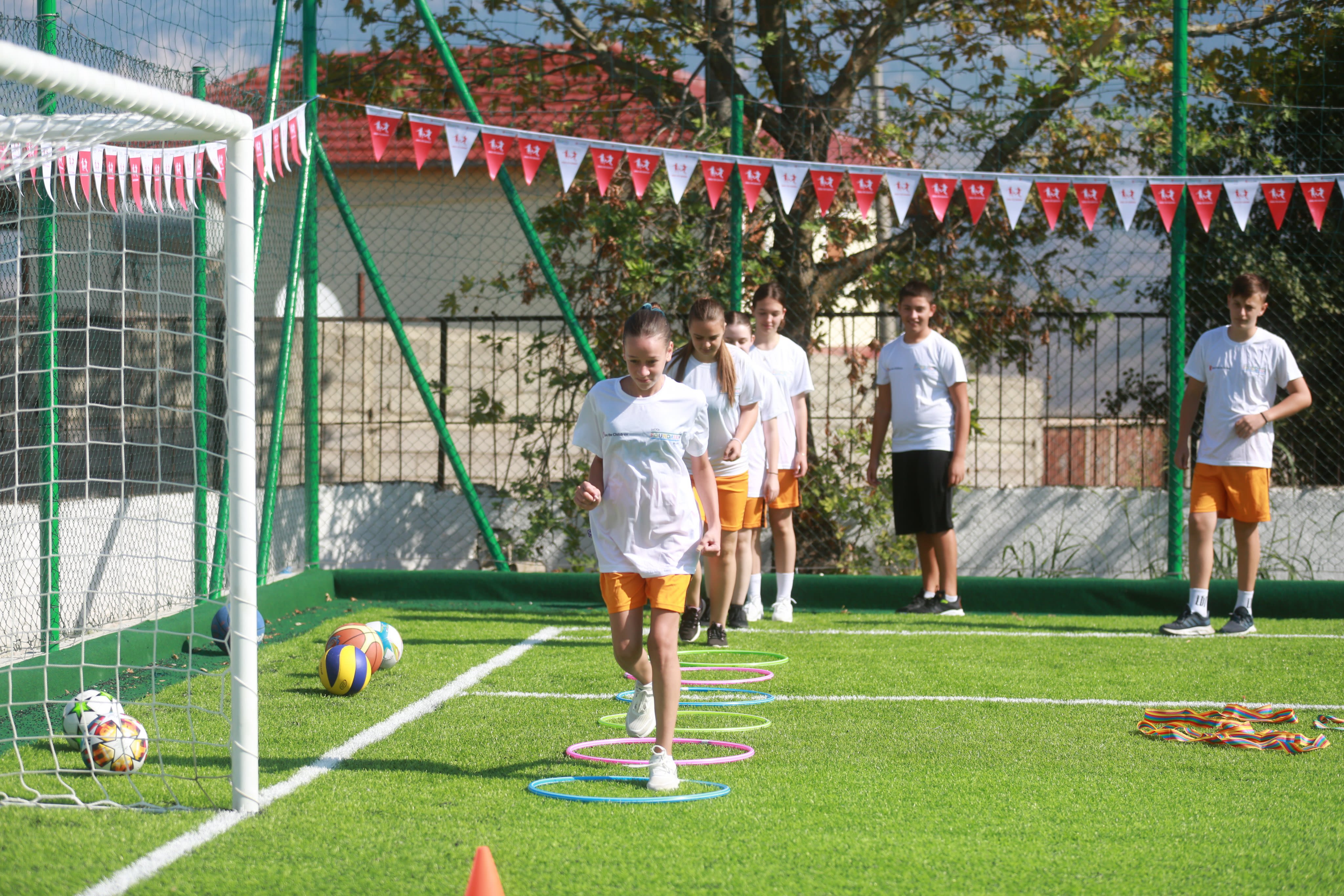
Photo: Save the Children Albania
Photo: Save the Children Albania
Albania
Poverty and education projects include: ‘Score for education’, ‘Power for Youth’, and ‘Leave no child behind’.
‘Leave no child behind’ promotes and supports take-up of inclusive education policies and practices locally and centrally, holding institutions accountable for creating safe, protective spaces for all children in three municipalities.
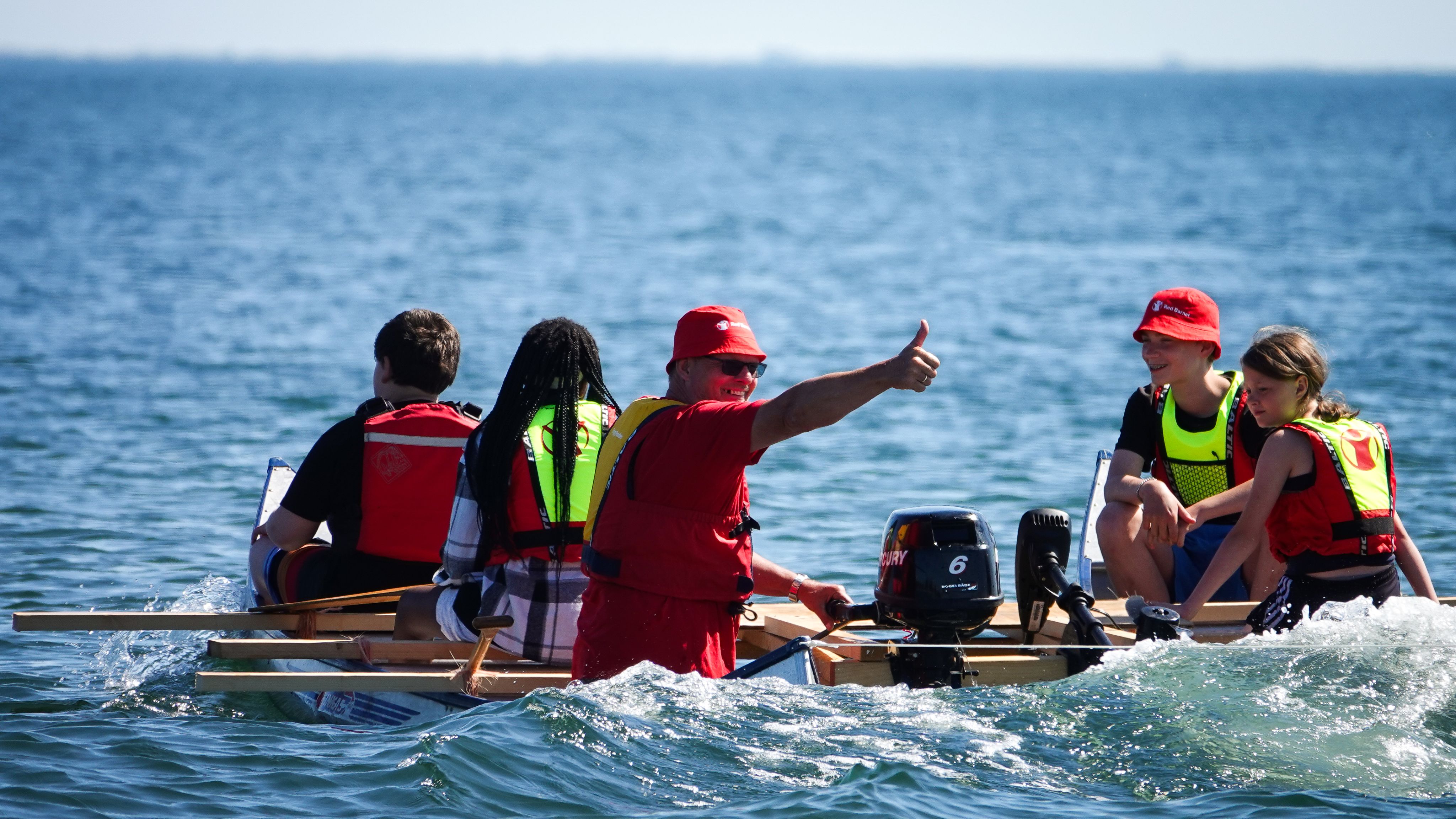
Photo: Save the Children Denmark
Photo: Save the Children Denmark
Denmark
Projects to tackle child poverty include: ‘Clubs and Camps’, ‘Bridge-Building’, ‘At home with us’ and ‘A good start’. Education projects include: ‘Wellbeing in schools’, education and training activities, ‘The voice and participation of the child’ and the ‘Children’s Barometer'.
'The Clubs and Camps' programme includes clubs for different groups – for younger children, for families and vacation camps. Children and families are invited into facilitated sessions with games and play, time in nature, eating together and cultural activities. Nationwide, Save the Children Denmark runs around 63 family clubs 40 vacation camps each year.
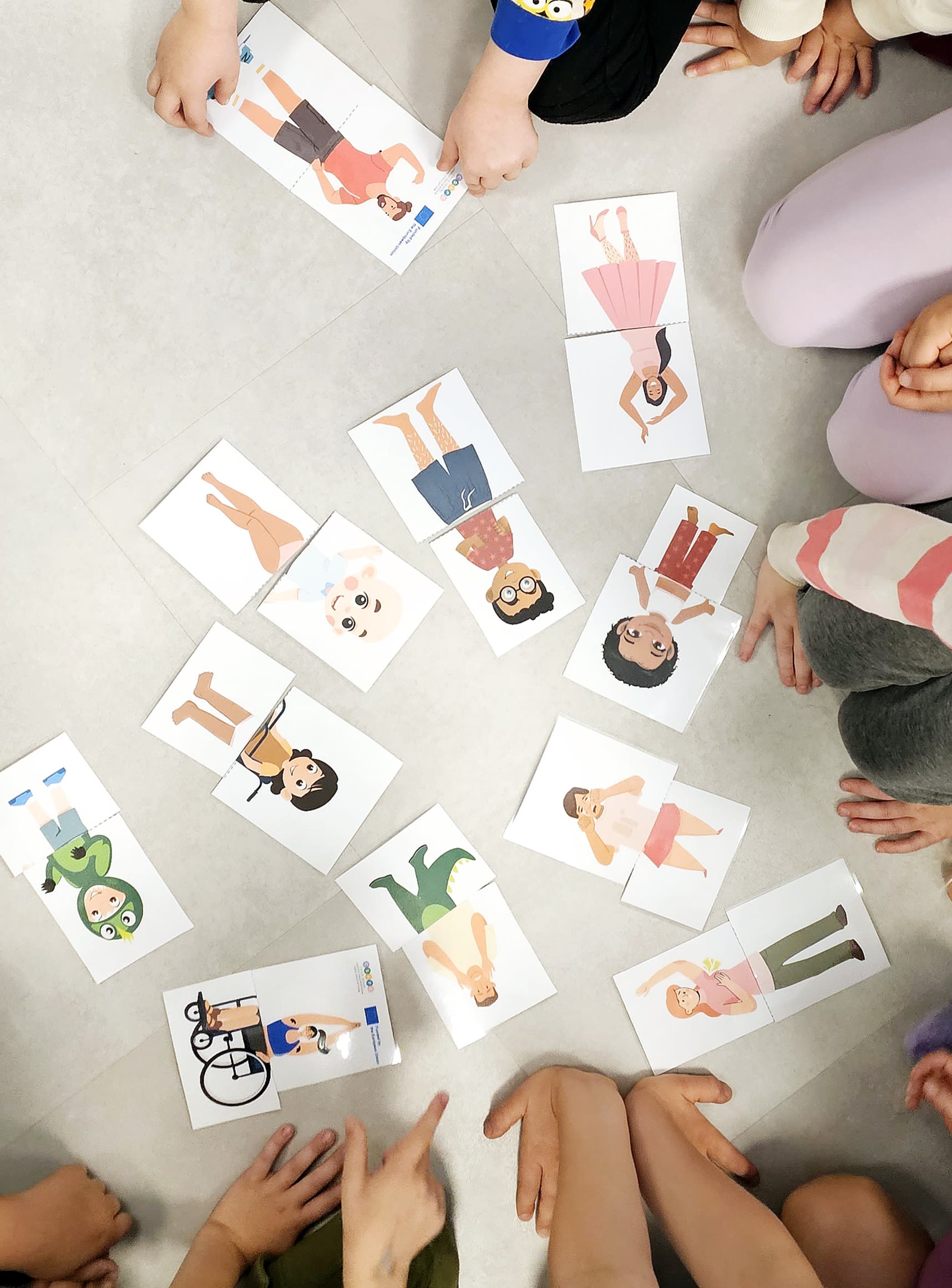
Photo: Save the Children Finland
Photo: Save the Children Finland
Finland
The ‘Children’s Voice’ annual national survey, and projects including ‘Support families’, ‘Fuel for life’, ‘Holiday homes’, ‘Family houses’ and ‘Sport mentors’ all help reduce the effects of poverty.
‘Support families’ helps families where parents struggle with single parenthood, lack of time for themselves or difficult life circumstances. Children usually spend a weekend or 1-2 nights per month and some holidays with the support family, but otherwise live in their own home.
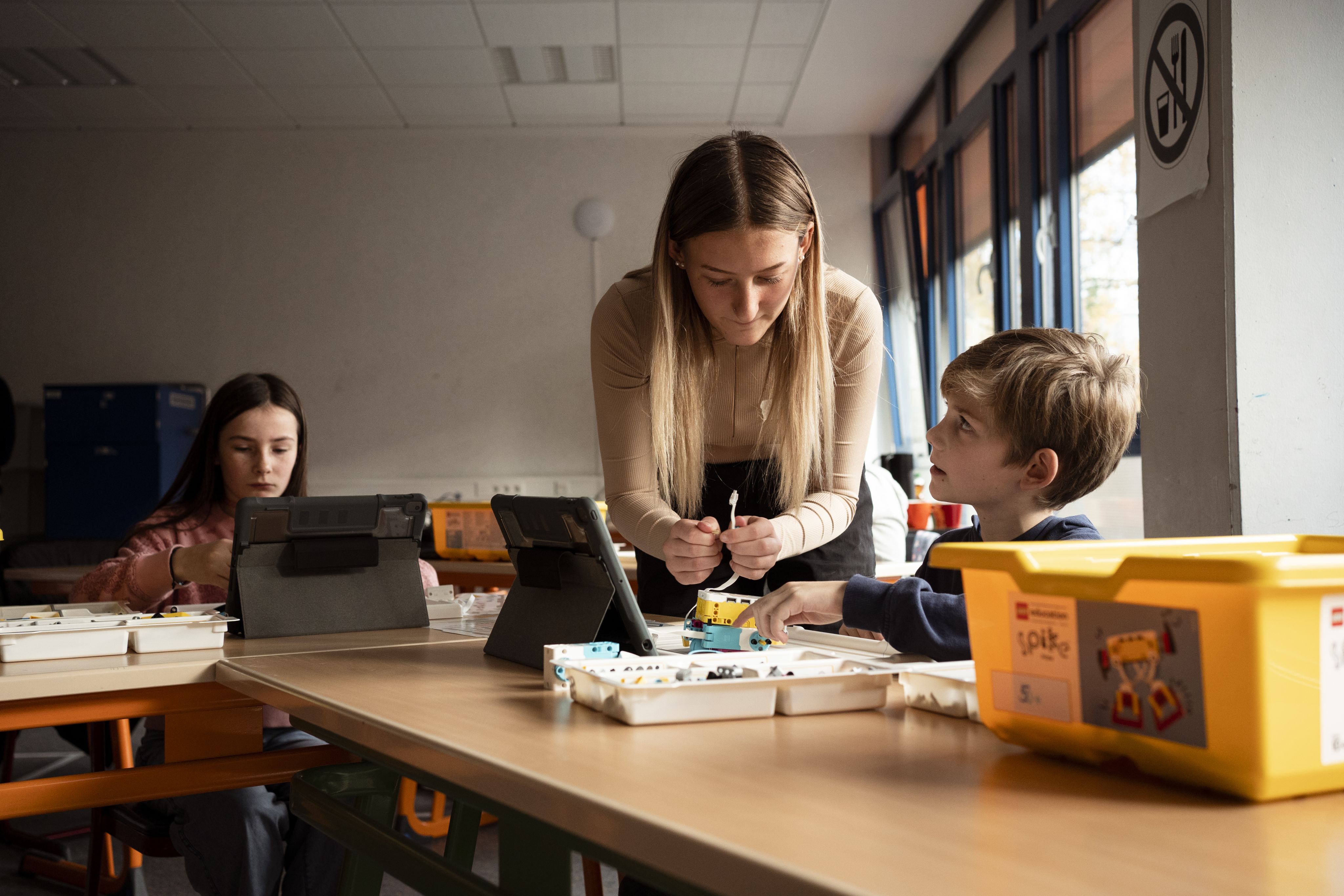
Photo: Save the Children Germany
Photo: Save the Children Germany
Germany
Education projects include: ‘Reading Oases’ and ‘MakerLabs’ reaching out to communities with high levels of poverty and ‘Acting together’ supporting refugee children.
'MakerLabs' offers professional training and coaching on digital skills for children from communities with high rates of poverty. The methodology allows children to experiment and learn to problem-solve in a creative way. The project also provides financial support to participating schools, libraries, and youth clubs for digital tools to set up their own mobile MakerLabs.
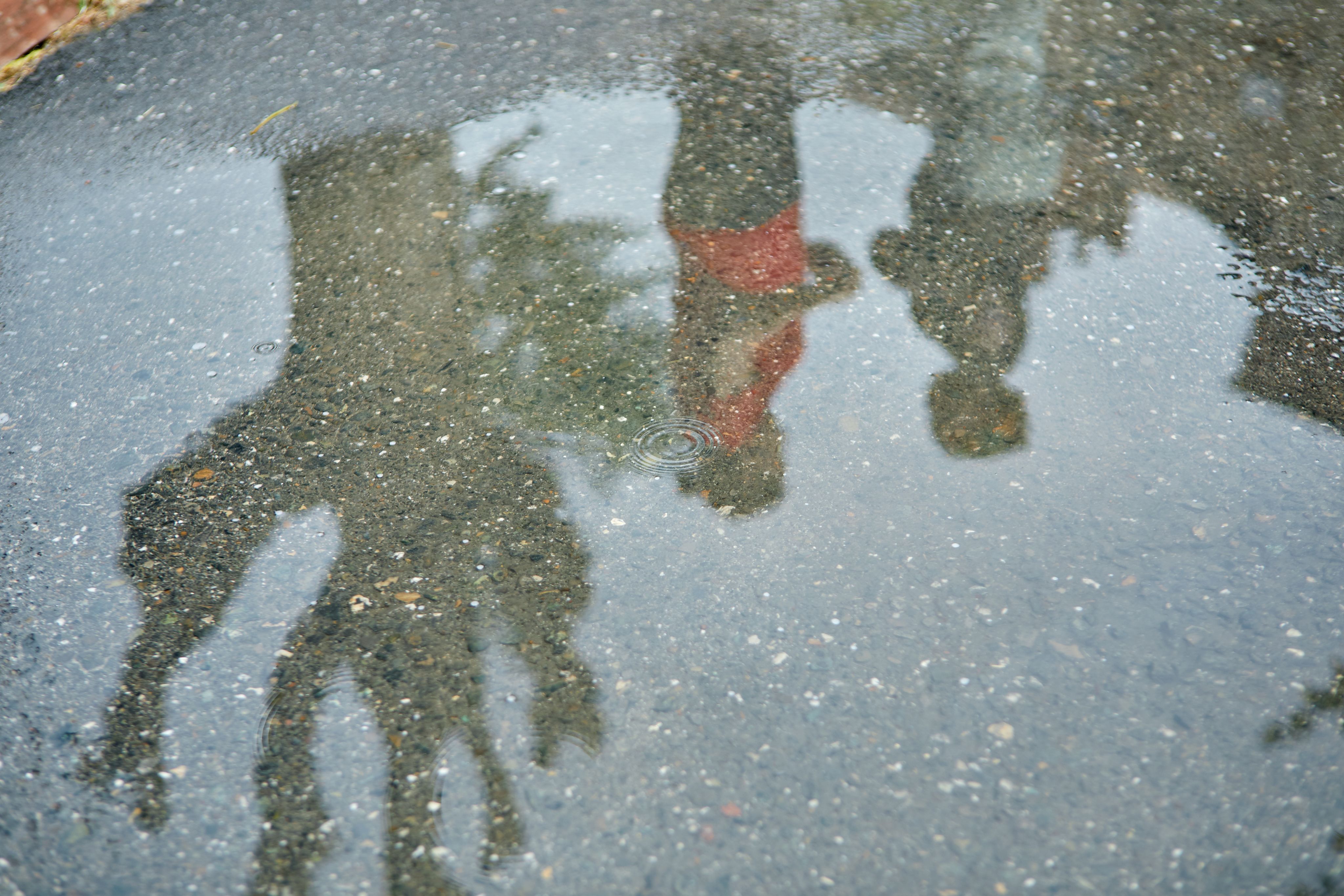
Photo: Gianfranco Ferraro / Save the Children
Photo: Gianfranco Ferraro / Save the Children
Iceland
The ‘Bicycle collection’ project has collected and given out bikes to over 3,000 children. Every year in March, used bicycles are picked up, repaired by volunteers guided by experts, and given to children and teenagers who couldn’t otherwise afford one.
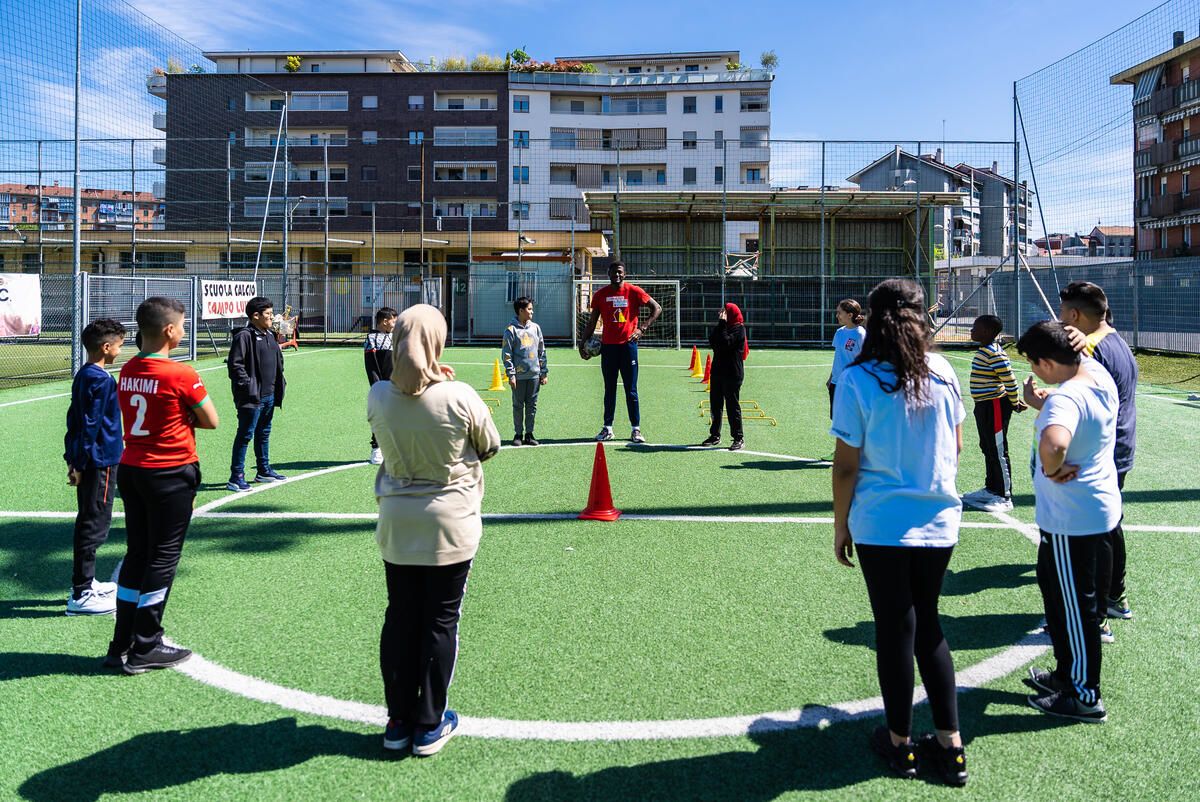
Photo: Save the Children Italy
Photo: Save the Children Italy
Italy
Projects to tackle child poverty include: ‘Spotlight’ centres, ‘Mothers’ space’, ‘Fiocchi in Ospedale’ and the ‘Social Innovation’ programme. Educational projects include: ‘Champions on the Move', ‘Volunteers for education’ and ‘The educational archipelago’.
At 'Spotlight' centres, children and young people can join a range of educational and recreational activities from sports to after-school support. Save the Children Italy runs 26 centres in 20 Italian cities, working together with the local communities.
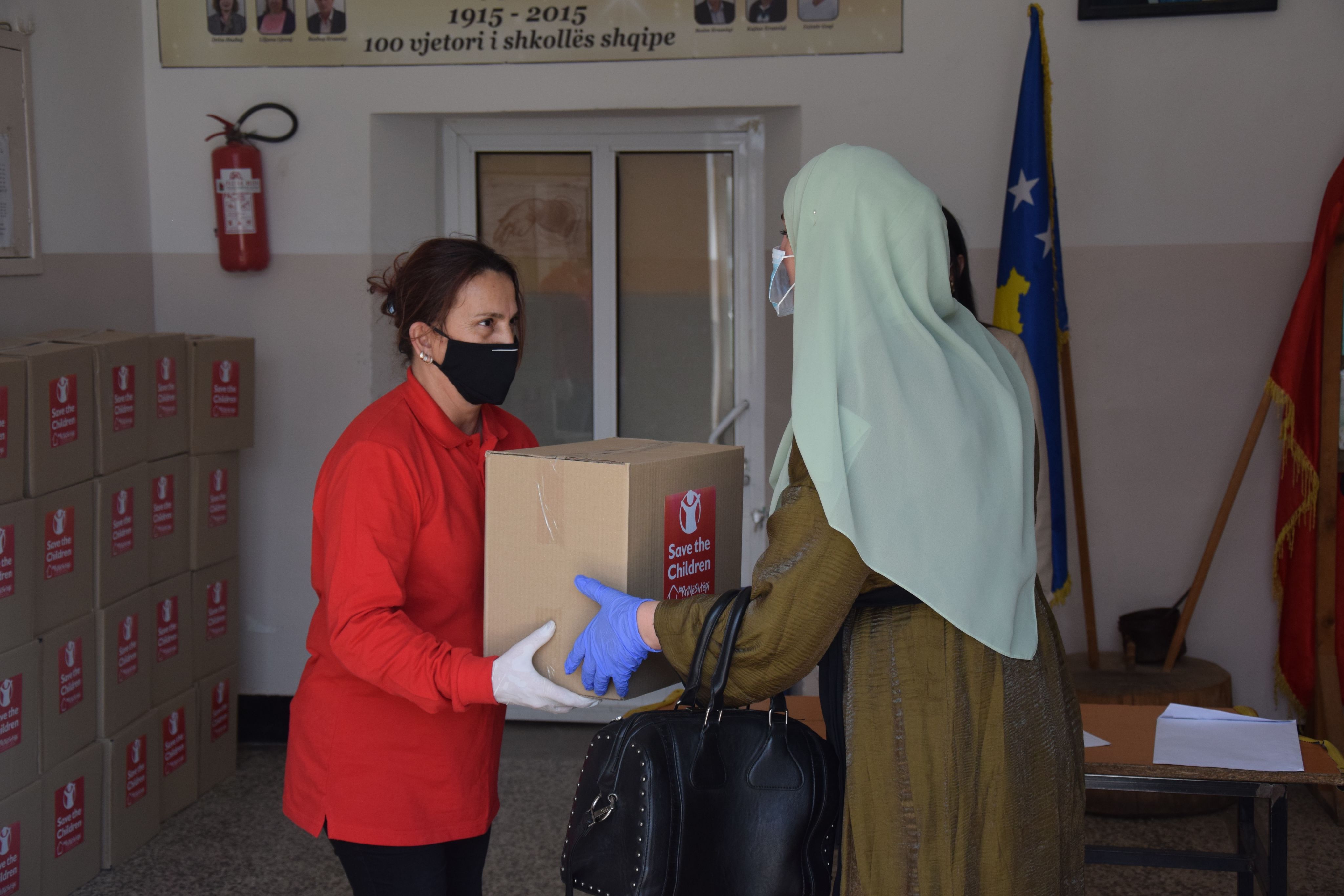
Photo: Save the Children Kosovo
Photo: Save the Children Kosovo
Kosovo
Education projects include: ‘Extending Integrated Community-based Early Childhood Care and Development (ECCD) in Kosovo’, ‘Early Childhood Care and Development 2022-2024' and ‘Promoting educational and social inclusion’.
'Extending Integrated Community-based ECCD in Kosovo' aims to establish 10 ECCD centres in rural areas, support nine public preschool institutions, engage 10 preschool educators and 10 community mobilisers for community-based ECCD centres, support the sustainability of the centres, and provide child-friendly resources, toys, books and small grants.
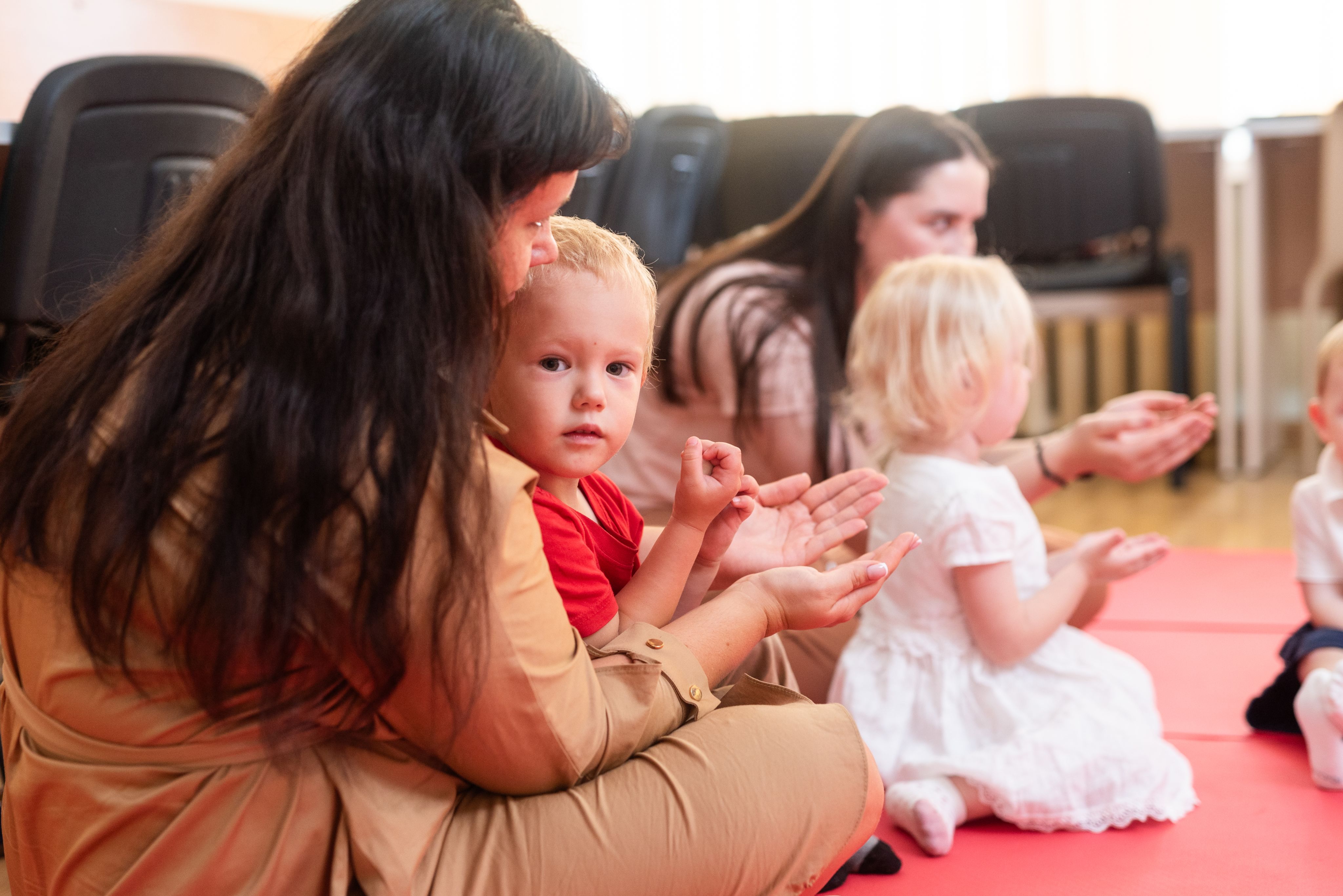
Photo: Save the Children Lithuania
Photo: Save the Children Lithuania
Lithuania
Child poverty interventions include: Day Care Centres, the ‘For children on the move’ programme, the ‘Family support’ programme and the ‘Cash Assistance’ project. All programmes are available both for the local communities and for Ukrainian refugees.
43 Children Day Care Centres are united by SC Lithuania across al regions of the country. The centres provide social services and daily after class activities for children.
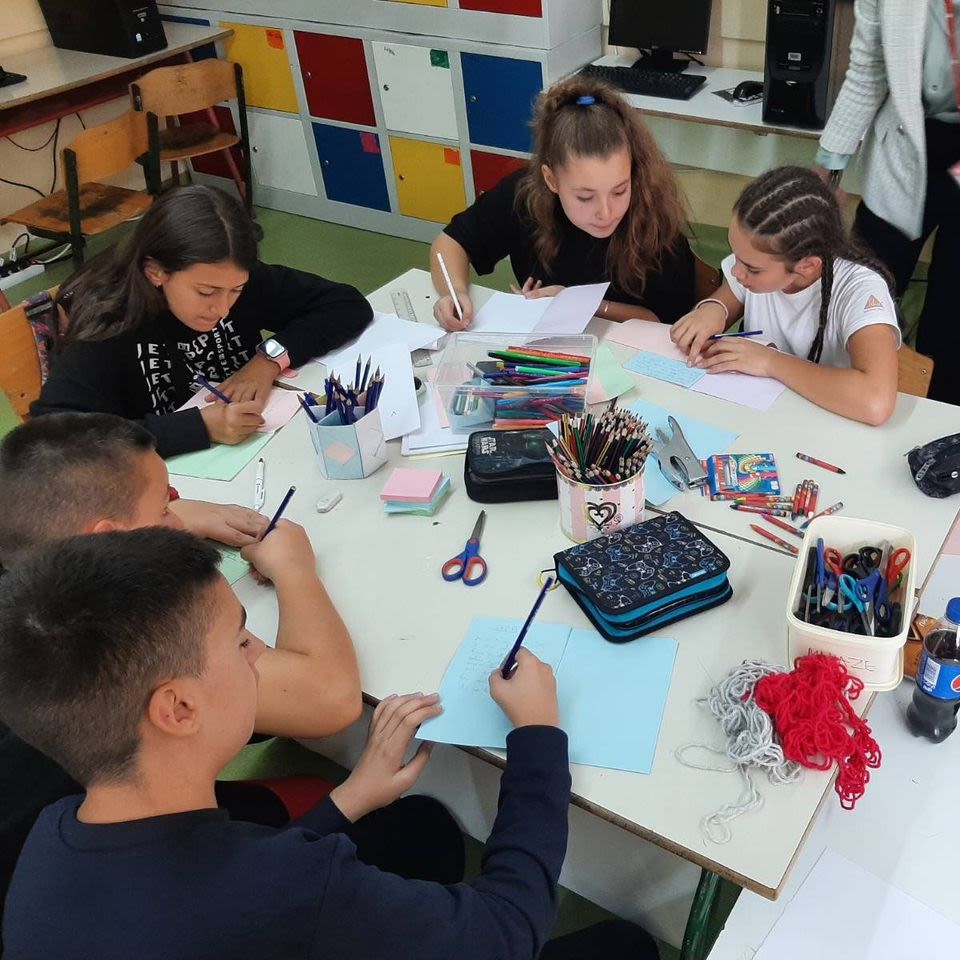
Photo: Save the Children North-West Balkans
Photo: Save the Children North-West Balkans
North-West Balkans
Education projects include: 'Education on the move’, ‘Language learning opportunities for children in public schools in Una-Sana Canton through the Akelius Digital Language course’ and ‘Targeting hazards and reducing violence in Education’.
‘Improving access to and quality of inclusive education for vulnerable children during Covid-19 pandemic’ strengthens education systems in Una Sana Canton in Bosnia and Herzegovina, and in Belgrade, Serbia, to deliver quality online teaching with a focus on inclusion of vulnerable groups such as Roma minority children, socially vulnerable children and children with disabilities.
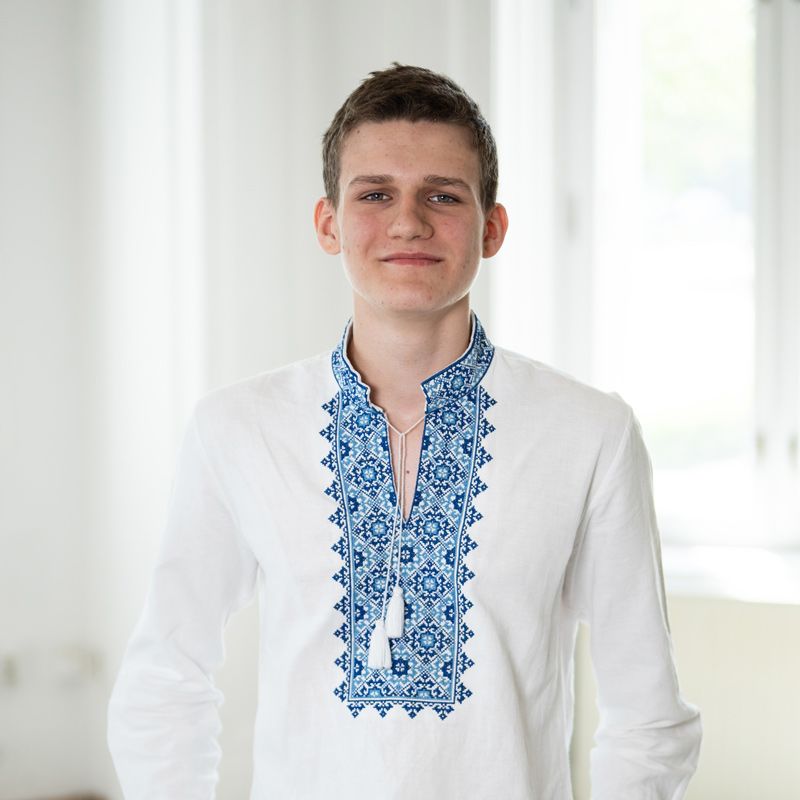
Photo: Save the Children Poland
Photo: Save the Children Poland
Poland
Education projects include: ‘Libraries for All’, 'Improving the life chances of young Ukrainian refugees in Poland’, ‘The Ukrainian School’, ‘Education for Ukrainian Children - Unbreakable Ukraine, ‘LanguageSupp Ukraina’ and ‘Summer camps for Ukrainian children and caregivers’. Child poverty interventions include: multi-purpose cash assistance and cash top-ups, and the 'Livelihoods' project.
‘Livelihoods’ supports young people up to 24 with job counselling and access to vocational and soft skills training, helping them into work.
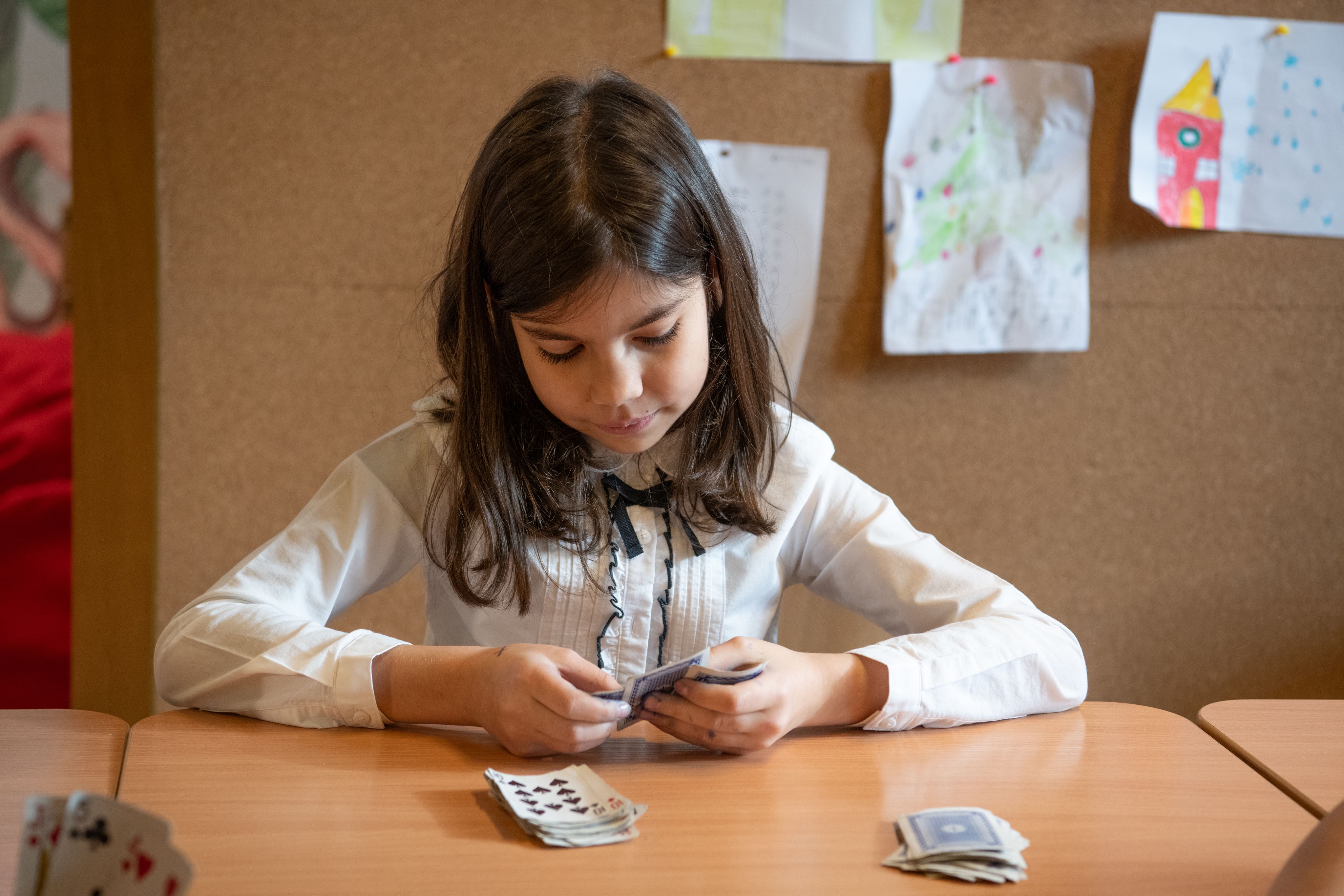
Photo: Claire Thomas / Save the Children
Photo: Claire Thomas / Save the Children
Romania
Educational and poverty projects include: 'Preschool education', 'Education for school children' and 'A second chance'.
'Education for school children' supports children with direct additional schooling and/or remedial education, emotional support and guidance, as well as informal educational activities and provides parents with support such as vouchers, food and hygiene products and social care services.
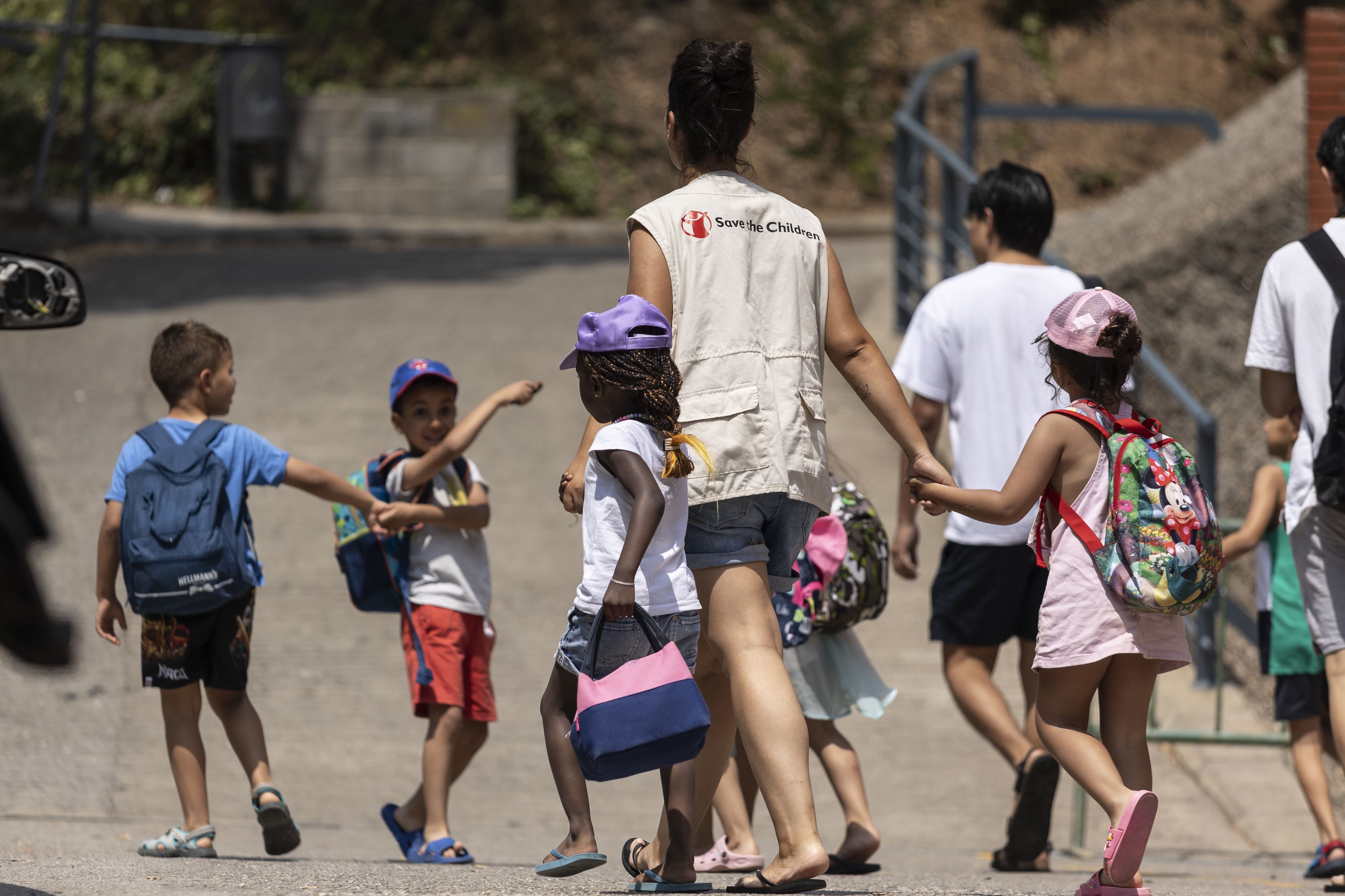
Photo: Save the Children Spain
Photo: Save the Children Spain
Spain
Projects to tackle child poverty include: ‘Promotion of cultural and ethnic diversity with a focus on children’, ‘Caixa ProInfancia’, ‘Inspire’ and the pilot project ‘Social and work inclusion for families with children at risk of exclusion’.
Education project ‘Socio-educational programme Impulsa’ runs in 20 cities and more than 80 public schools and high schools, as well as five Save the Children centres. Children and their families in situations of vulnerability and/ or risk of expulsion from Spain are supported with developmental, educational and healthy leisure activities, and psychotherapeutic support.
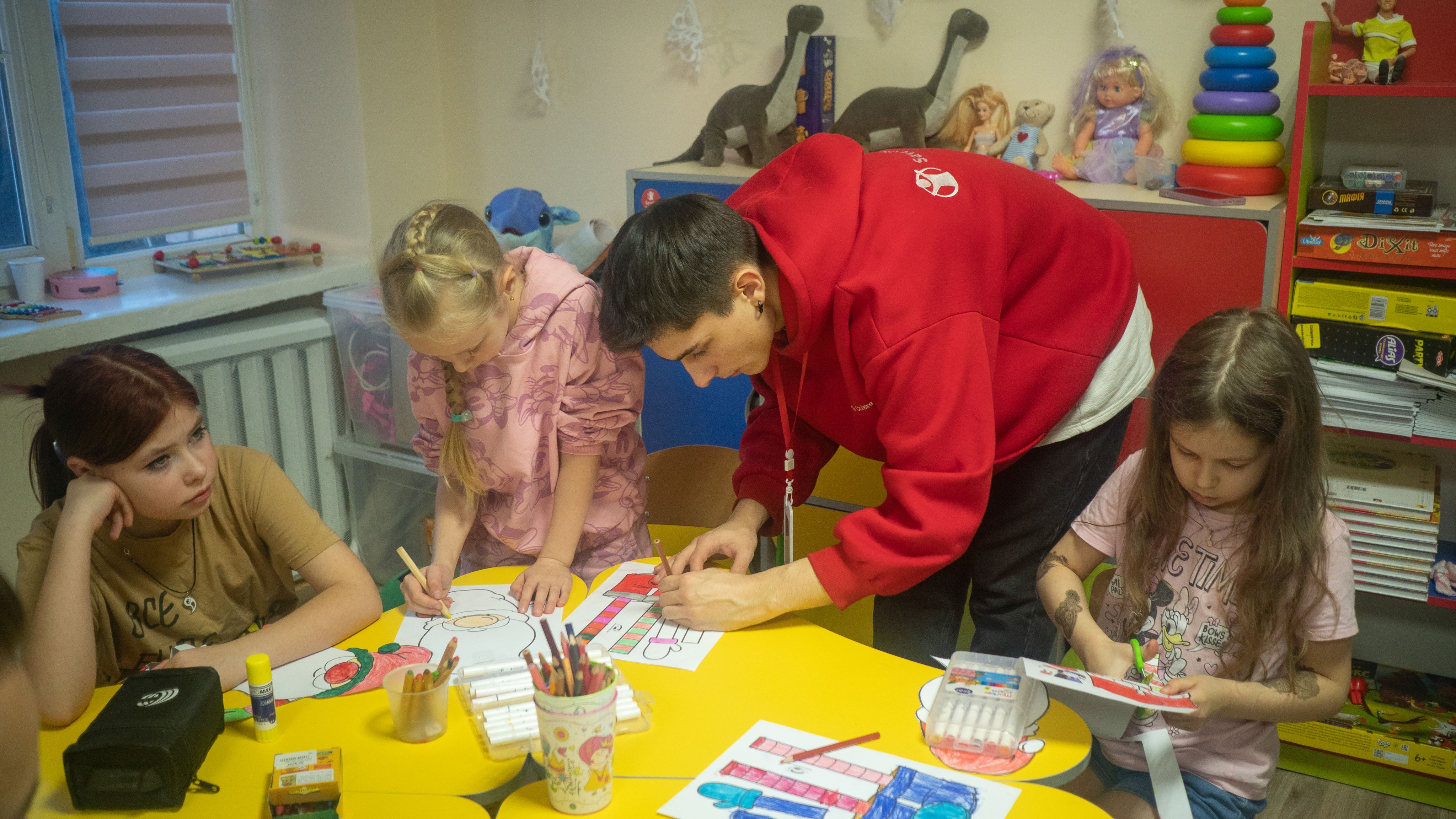
Photo: Yuliia Achymovych / Save the Children
Photo: Yuliia Achymovych / Save the Children
Ukraine
The Ukraine Country Wide Response programme, supports the basic needs of the most vulnerable families, providing food, shelter and help to stay warm through winter, and multi-purpose cash grants to vulnerable children and families affected by the war. Response work covers water and sanitation, education and child protection.
With Internal Humanitarian Fund support, our Rapid Response Mechanism supported over 50,000 individuals with emergencies-tailored food assistance. Save the Children is also preserving and enhancing the livelihoods of 600 affected households and caregivers, cultivating market-responsive skills, ensuring information access, and offering Livelihoods [re]Activation Grants to help families continue to support themselves.

